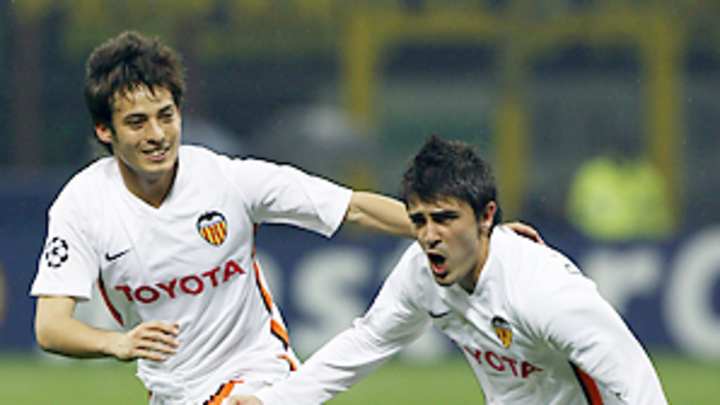Indebted Valencia facing fire sale

"International footballer for hire. Available for birthdays, weddings and bar mitzvahs. Children's parties a specialty. Call Valencia CF and ask for David."
Has it really come to this? In a word, yes. Very nearly, at least. It may not have been asked to twist balloons into animal shapes to delight squealing kids, but Valencia really has announced that its players are available for hire. Just like its pitch is. Fancy a kick-about at the Mestalla? Now, for a few thousand euros, you can.
The reason is simple: Valencia is a club in crisis, saddled with an estimated $725 million debt. Its very survival is under threat and it has now gone into a process that is essentially bankruptcy without the liquidators. What can be sold, rented or exploited for cash, must be. So bad have Valencia's financial troubles become that it cannot allow any revenue stream -- however minor, however absurd -- to slip through its fingers.
It is time for the asset-stripping to begin. What that means above all, of course, is that its best players will depart. Valencia will have to squeeze David Silva, David Villa, Joaquín, Juan Mata, Raúl Albiol and the rest dry ... and then sell them at the end of the season. And even that may not be sufficient to secure survival.
Valencia will have to sell its players because it could not sell its stadium. The world economic crisis has hit Spain harder than most, and the Spanish construction industry and housing market -- two markets upon which Valencia was depending -- harder yet. Throw in incompetent management from majority shareholder Juan Soler and his successors, and the net result is an unmitigated disaster with no apparent solution.
Players went two months without being paid until a short-term loan was agreed upon with local businesses. The president no longer controls the club and the owner does not want to own it. Nor is there a savior on the horizon. "We have," admitted coach Unai Emery, "reached rock bottom."
When Soler made himself president in October 2004, Valencia had enjoyed four glorious years, reaching two Champions League finals and winning two league titles and the UEFA Cup. Four years later, it had gone through five sporting directors, three director generals, three medical chiefs, three ostracized footballers and the club captain taking the president to court.
Money was wasted at an alarming rate, with the club's debt rising from $182 million to more than $580 million. It is now believed to be in excess of $725 million. Something in the region of $25 million each was spent on Nikola Zigic, Manuel Fernandes and Éver Banega -- three players who never had significant roles in the side -- and more than $40 million went to severance payments alone for former coaches Claudio Ranieri, Quique Sánchez Flores and Ronald Koeman.
The solution was to sell the land upon which Mestalla stands and build a new stadium. And so Valencia began work on a wonderful new arena while preparing to sell its old one. It planned to repeat the trick with its Paterna training ground. But the property bubble burst and the club could not find a buyer for either the Mestalla or Paterna. Nor could it find the money to pay for the building work on the new stadium.
Soler sold his shares to Vicente Soriano, who promised to pay him $116 million and find a buyer for the Mestalla at $436 million, but things went from bad to worse as Soriano broke both promises and the shirt sponsors dropped the club ... as did the regional government.
With Valencia owing $20 million to the companies building the new stadium, and another $22 million to its players, it ground to a halt. The players went unpaid and promptly stopped winning, and work stopped on the new stadium, which sits unfinished as a monument to mismanagement and megalomania.
That was when Bancaja -- Valencia's main creditor, which is owed some $350 million -- took over, imposing an austerity package on the club. (The club also secured a $65 million loan earlier this month.) "We must," said Javier Gómez, the new executive director, "cut costs and raise money." In other words, with the stadium having morphed from a golden goose into an albatross round the neck, it has to exploit the few real assets it has: the players.
And so it's auction time this summer, with everyone from Manchester United to Liverpool, Real Madrid to Barcelona and Juventus to Milan invited. Anyone need a couple of midfielders, a reserve goalkeeper and a left back?
This article originally appeared in the May 2009 issue of World Soccer magazine. To subscribe, click here.
